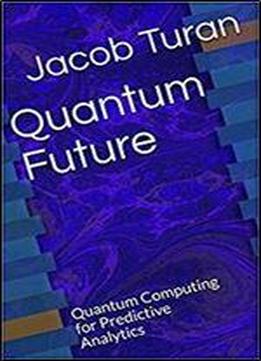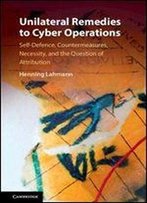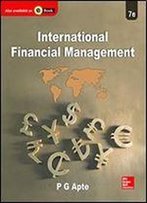
Quantum Future: Quantum Computing For Predictive Analytics
by Jacob Turan /
2017 / English / Kindle
215.9 KB Download
Mankind creates an all knowing computer,
They ask the computer, "Is there a God?"
The computer responds, " There is now."
What will happen next? Will humanity still have a place after the Singularity? And what will that place be?
"Quantum Future" delves into what role the emerging computer science of quantum computing will have on the development of artificial intelligence and what role this will have in our ability to predict future events before they happen!
Abstract:
The research examines computer generated predictive analytics and the possible future role of AI capacity quantum computers in that field of intelligence. Detractors of artificial intelligence (AI) have expressed their belief that computer technology is fundamentally limited to the role of a tool which human analysts may fruitfully rely upon while producing predictive analytics reports. Computer technology may be unable to ever exercise the problem solving skills needed to produce predictive analytics reports beyond mere pattern and trend recognition. However, machine learning and computer problem solving is advancing because of new methods of computation known as quantum computing. The emerging technology known as quantum computing is examined as an important factor that may allow computer technology to advance to the levels of AI needed so as to eventually produce complex computer generated predictive analytics reports.
Introduction:
The research topic considers if computer scientists may be able to invent quantum computers in the near future that will be capable of functioning at the levels of AI needed to independently produce predictive analytics reports which are of at least the same analytical quality as are now produced by human analysts. The research offers the following research question: in what ways can artificial intelligence based predictive analytics be advanced by quantum computing? This research question would be of t to the intelligence community because of the possible advancements in the field of predictive analytics that would be achieved if quantum computing technology is reasonably expected to be someday capable of matching or exceeding human predictive analysts. Not all experts in the field of artificial intelligence are confident that computers will be developed with the ability to match human analysts according to Chomsky and Danaylov (2013), the much respected linguist Noam Chomsky has stated his belief that computer technology will most likely not be able to solve problems in a way that is fundamentally the same as the problem solving cognition methods of human beings. Chomsky also expressed his belief that IBMs Watson is more of a PR gimmick rather than any kind of problem solving AI technology. Chomsky does not believe that the development of true AI is even remotely close to being accomplished in the foreseeable future (Chomsky and Danaylov 2013). However, the current inferior position of computer based predictive analytics in comparison to human based predictive analytics may someday be upset or reversed by the future development and application of quantum computing in the field of predictive analytics. The source by Cuthbertson (2015), explains that the processing speeds used in Big Data crunching would almost certainly be exponentially increased if quantum computing technology could be developed for commercial integration with a system such as IBMs Watson Analytics. Quantum computing uses quantum particles to express binary code, which means that the storage processing power would be much higher than any kind of non-quantum based computer technology. Limited testing has shown that quantum computing is possible and quantum computers also have the capacity to learn (Cuthbertson 2015). Indeed, despite the fact that quantum computing is still in a very early stage of development, promising signs of machine learning have been noticed by quantum computer scientists.










